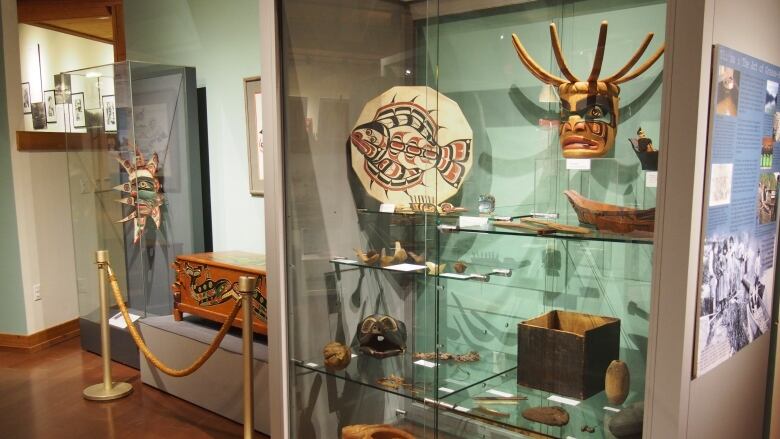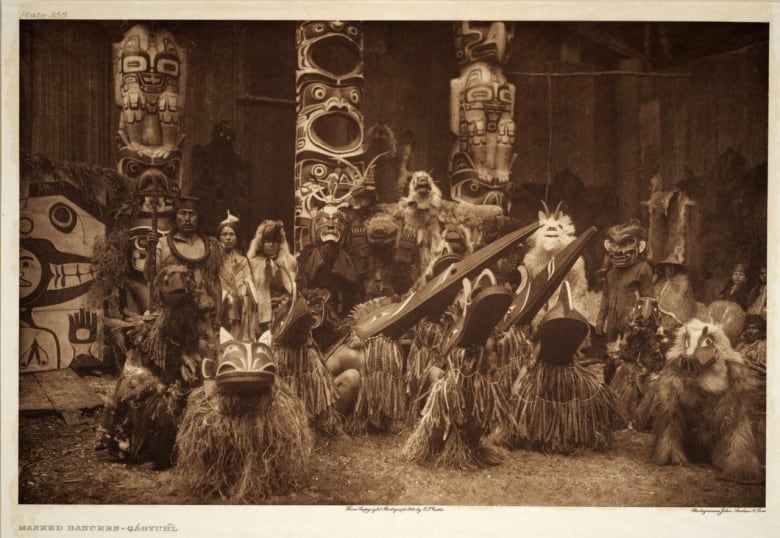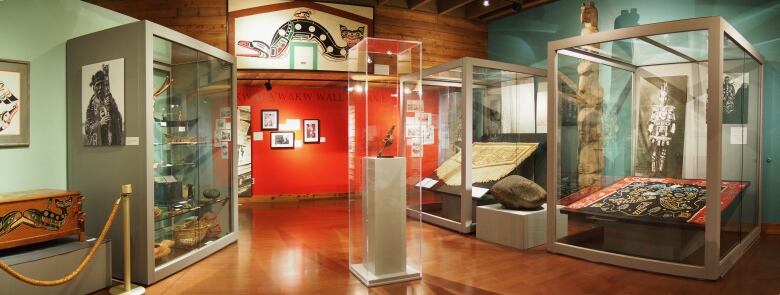U'mista cultural centre celebrates 40 years with online launch of new exhibit
A special exhibit on the centre's history opens Saturday, Nov. 7 and runs until December 2021

The U'mista Cultural Centre in the 'Namgis First Nation in Alert Bay has put together an exhibit in honour of the centre's 40-year history.
The centre's creation is intricately linked to theKwakwaka'wakw practice of the potlatch. The potlatchwas an important community practice and celebration forthe Kwakwaka'wakwnations along the west coast, often done to mark important occasions like marriage, births and funerals.
The cultural practice was banned in the late 1800s by the federal government.
Bill Cranmer,the board chair of the U'mistaCultural Centre, said the ban was fuelled by misinformation.
"They said that it was a waste of time for our people. We gave away our women and gave away all of our possessions and it was a lot of misinformation," Cranmer said.
During the ban, regalia and important ceremonial items were taken away to museums and private collectors around the world. Members who participated in so-called illicit potlatch activities were arrested.

During the ban, Bill's fatherDan Cranmerorganized thethe largest potlatch recorded on the northwest coast of British Columbia in December 1921.
"People were charged, arrested and tried," Cranmer recounted of his father's event. "More would have been sent to prison if they didn't agree to give up all of their masks and promised not to potlatch anymore."
In all,22 people went to jail.
Eventually, in 1951, the potlatch ban was overturned. But Cranmer said the nearly 60-year cessation had dire consequences for his nation.
"The potlatch law did a lot of harm to our people," he said.
"It was a way for government to pretty well wreck the society our people lived under.It was a way for them to take away our land by Canadian law, because it was under the Indian Act. It's no coincidence that shortly after 1921 we had these huge land grabs in our territories."

The centre, which was established in 1980, was part of the potlatch revival. It houses many of the repatriated ceremonial items and masks that were taken away during the potlatch ban. Items continue to be repatriated to the centre.
"It gives our people part of their history that was pretty near destroyed by the federal government because of the Indian Act and the anti-potlatch law that prevented our ceremonies," said Cranmer.
"Since the U'mista Cultural Centre was opened, we've been providing a very important part of our history to our people."
On Saturday, there will be an online event to mark the history of the museum. An online exhibit and virtual collection will also run until December 2021.
Listen to the interview withBill Cranmaron CBC's All Points West here:
With files from All Points West












_(720p).jpg)


 OFFICIAL HD MUSIC VIDEO.jpg)
.jpg)



























































































